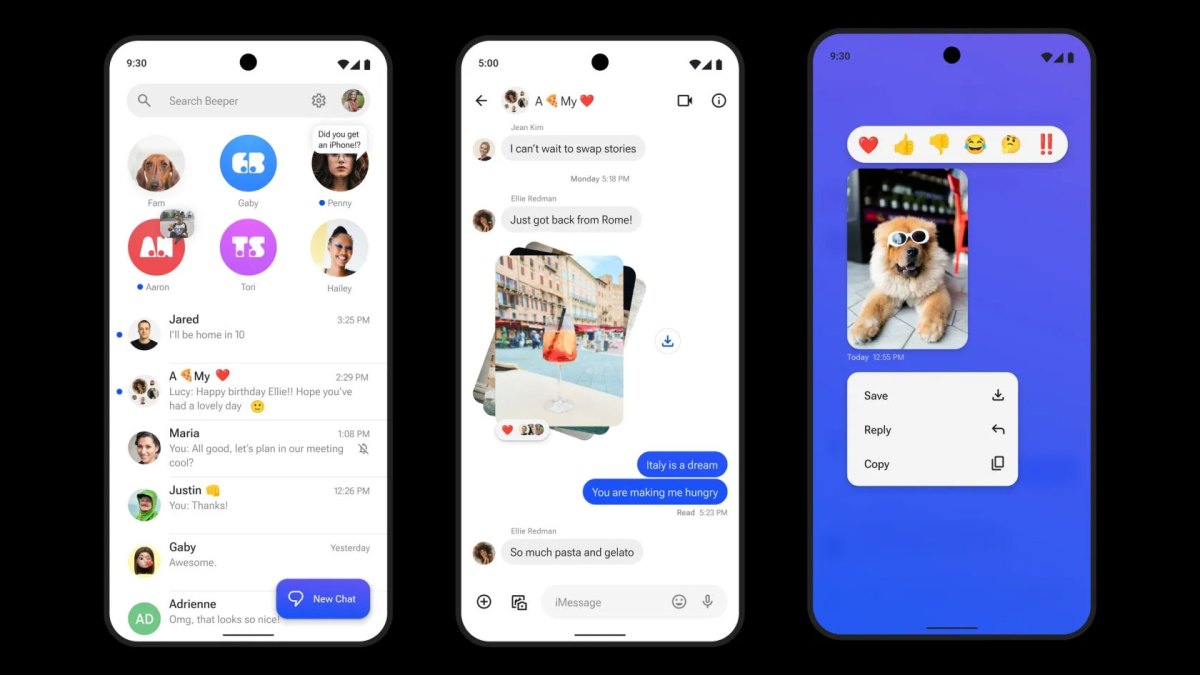The U.S. Department of Justice’s lawsuit against Apple, filed on Thursday, highlights Apple’s actions against Beeper, an app that aimed to bring iMessage to Android users. Beeper abandoned its mission after Apple blocked the app’s efforts late last year. The DOJ referenced this dispute in its lawsuit as an example of Apple controlling third-party behavior and innovation to eliminate competition.
Beeper, founded by Eric Migicovsky, managed to reverse-engineer the iMessage protocol to enable end-to-end encrypted iMessage chats for Android users. Beeper acted as a full iMessage client, supporting various features like threads, replies, read receipts, direct messages, group chats, tapback emoji reactions, and editing.
Apple and Beeper engaged in a back-and-forth battle, with Apple ultimately emerging victorious. Despite Beeper’s attempts to maintain its service, Apple constantly thwarted their efforts. This conflict prompted a bipartisan group of lawmakers to urge the DOJ to investigate Apple’s anticompetitive behavior towards the app.
The DOJ’s complaint stated, “Recently, Apple blocked a third-party developer from improving cross-platform messaging in Apple Messages and implementing end-to-end encryption for messages sent between Apple Messages and Android users.” This action, according to the complaint, compromises iPhone users’ security.
During the dispute, Apple claimed that Beeper posed security risks to users, including metadata exposure and the potential for spam and phishing attacks.
The battle between Apple and Beeper also caught the attention of FCC commissioner Brendan Carr, who requested an investigation into Apple’s actions under the FCC’s Part 14 rules on accessibility, usability, and compatibility.
The lawsuit accuses Apple of safeguarding its smartphone monopoly to hinder cross-platform messaging apps and competitor smartphones. The DOJ argues that Apple knowingly undermines quality, privacy, and security for its users.
Furthermore, the lawsuit alleges that Apple restricts smartwatch cross-platform compatibility. This issue resonates with Migicovsky, who faced similar challenges at Pebble, a smartwatch company that ceased operations in 2016. The DOJ highlights Apple’s limitations on third-party smartwatch access to APIs compared to its own Apple Watch functionalities.
The lawsuit also claims that Apple hindered third-party smartwatch developers’ ability to offer features available on Apple Watch, such as responding to notifications. The DOJ even goes as far as accusing Apple of “copying the idea of a smartwatch from third-party developers.”
For more information on Apple’s antitrust lawsuit, refer to this link:


